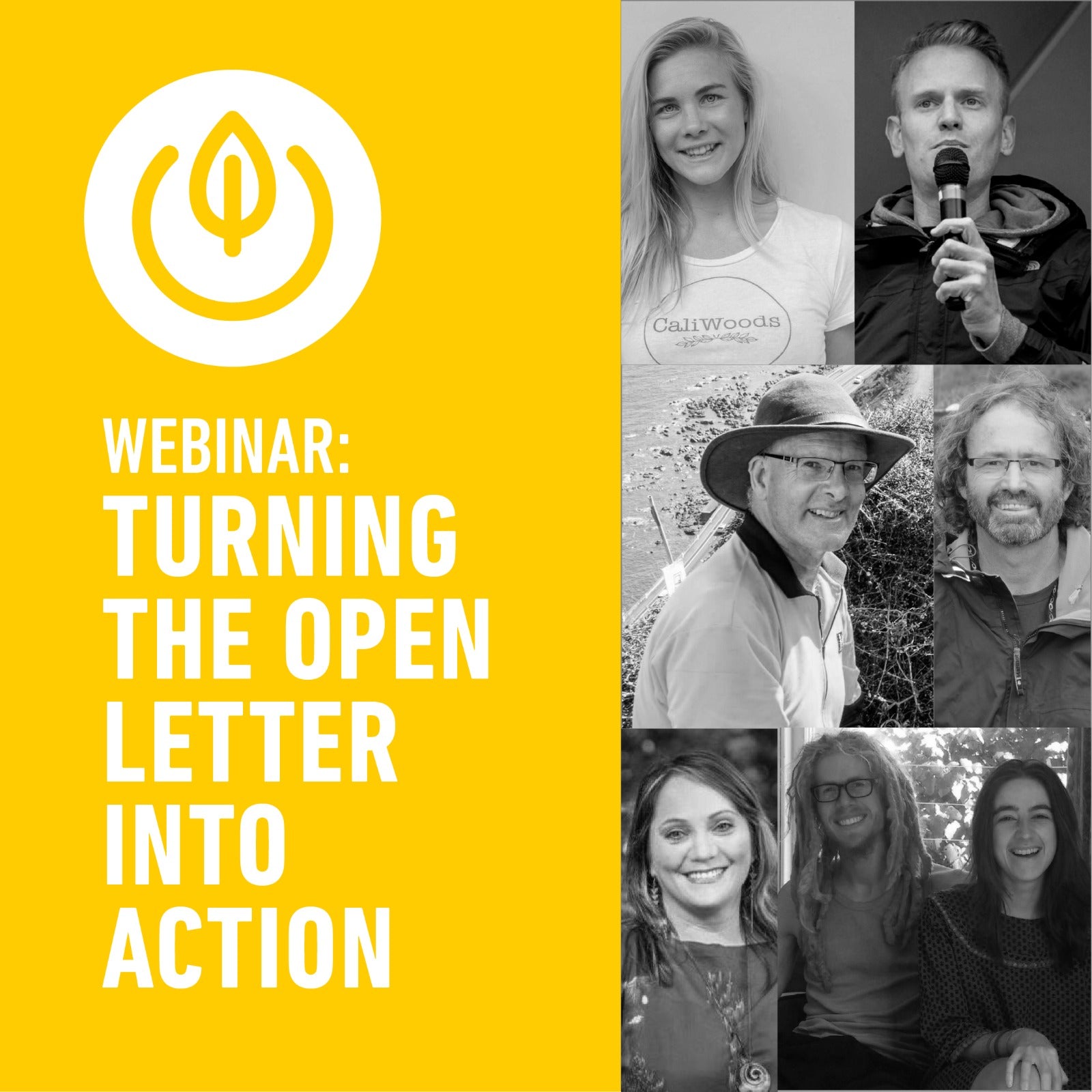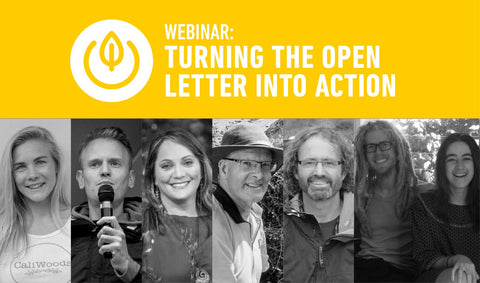Covid19 Sustainable Reset: The 'How'

Okay, we've all come together in support of the Open Letter. We've called on our Leaders for a Sustainable Economic Reset. We've asked for spending and decision making that takes care of all our people AND Papatūānuku.
Where to from here? HOW will we make our voices heard and what are some things we can do now to help?
Well, how about we call on the experts for that.

If you want to watch the recording of the webinar click here and use the password 5r%4!??5
Mike, what’s the one thing you would recommend to….
Businesses or Organisations: Commit to labelling your product with its environmental impact, its GHG, energy, water, nutrient and fossil fuel pollution footprint. If anything you use is non-renewable change to something that is.
Individuals: Look really hard at the provenance of what you eat, look at GHG emissions, pollution, ethics of production, food miles etc. Eat less meat
Government: For every single decision, think of consequences at least 30 and more like 500 years ahead
*Dr Mike Joy, Freshwater Ecologist and Science Communicator, Victoria University
Hannah, what’s the one thing you would recommend to….
My overarching suggestion is the same for individuals, businesses or organisations and Government, and that is to put whatever energy, time and investment you have available for waste minimisation towards activities and solutions that prevent and reduce waste and reuse resources, rather than focusing on recycling and disposal.
Businesses or Organisations: Products and packaging that are easy to reuse and repair are the way of the future. Work across your industry to create shared reusable packaging and refillable product delivery systems, and work within your business and operations to ensure that product design and procurement prioritise repairability and durability.
Individuals: Do what you can to avoid filling your rubbish bin - the main paths to succeeding here will be composting/worm farming/bokashi for organic waste, supporting businesses that sell unpackaged products (particularly groceries as most household packaging waste comes from the grocery shop), and having reusables on hand to avoid single-use products (cups, containers, cutlery, bags...). Use The Rubbish Trip Regional Zero Waste Guides to help you find what's available in your area.
Government: Use the provisions in the Waste Minimisation Act 2008 to move our economy up the waste hierarchy, prioritising infrastructural spending that will facilitate reuse systems at scale, and policy measures that will prevent and reduce waste at source.
*Hannah Blumhardt, Zero Waste Specialist, The Rubbish Trip
Paul, what’s the one thing you would recommend to….
Businesses or Organisations: Analyse their emissions footprints and ensure they decline year by year in actual terms not just through offsets
Individuals: Buy a bike and use it!
Government: Require each sector of the economy to develop a plan with times frames to reduce their emissions to meet our agreed targets.
*Dr Paul Callister, Economic and Social Research
David, what’s the one thing you would recommend to….
Businesses or organisations: Measure your impact, then set targets to lower it. For emissions, the Science Based Targets Initiative provides a useful framework to get your emissions on track with the ambition of the Paris Agreement. The Climate Leaders Coalition, Sustainable Business Council and Sustainable Business Network all have resources you can use.
Individuals: You have more power together than alone. Activism works. Our government banned offshore oil exploration and passed the Climate Change Response (Zero Carbon) Amendment Act because people all over Aotearoa stood together and pushed. In your life and activism, think about how you can amplify and be an ally to structurally oppressed and climate vulnerable communities. Tangata whenua and Indigenous peoples, people with disabilities, Pasifika peoples and others from the Global South, women and others face disproportionate impacts from both the climate crisis and the Covid-19 emergency.
Government: First, uphold Te Tiriti o Waitangi. Second, use this opportunity to manage the decline in fossil fuel production and consumption, building on the principles of a just transition, rather than futilely attempting to return to a mythical, 20th century idea of "business as usual".
*David Tong, Senior Campaigner for Oil Change International
0 comments

